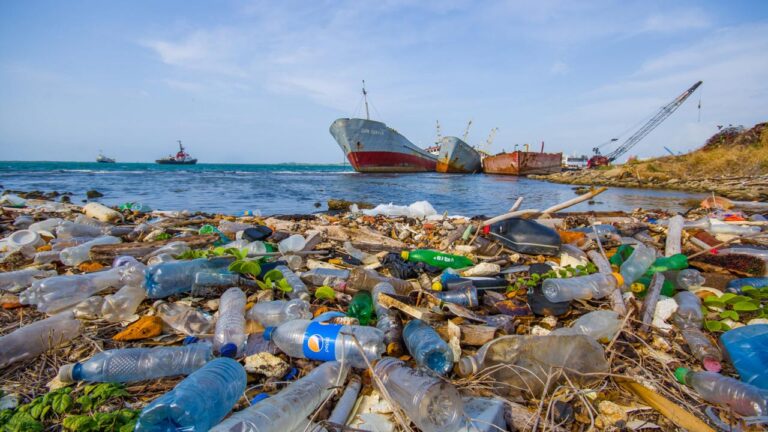Stakeholders advocate community inclusiveness to reduce marine plastic pollution

Stakeholders on Thursday in Abuja advocated for more community inclusiveness in reducing the menace of marine plastic pollution in the country.
They made the call at a Stakeholders’ Engagement meeting with the theme “Reducing Marine Plastic Pollution Through Recycling”.
The News Agency of Nigeria (NAN) reports that the programme was organised by Initiative for the Advancement of Waste Management in Africa (W.A.S.T.E Africa) and sponsored by the Global Environment Facility Small Grants Programme (GEF SGP), and United Nations Development Programme (UNDP).
Ms Juliet Odhikori Programme Director, WASTE Africa, in her address said the programme was aimed at empowering women and others who are engaged in the recycling process.
Odhikori said the idea is to reduce marine pollution entering into rivers around Lugbe area of Abuja.
She said that the group has been to Lugbe and Gwagwalada areas and established nine clusters.
Also, Mrs Ibironke Olubamise National Coordinator, Global Environment Facility Small Grants Programme said plastic waste is a menace globally.
Olubamise said that plastic pollution in the country also leaks into international waters, hence the involvement of the UNDP in building capacity of stakeholders.
She lauded WASTE Africa for impacting on local community women which is one of the objectives of GEFSGP.
Speaking also, Mr Olusegun Olusa, Director Environmental Services, Satellite Town Development Department, Federal Capital Development Authority, called for greater community inclusiveness in plastic pollution management.
Olusa called for stricter enforcement of laws to deter defaulters.
While commending WASTE Africa, Yunusa Bako, the Hakimi of Karamajiji said the project has helped to make his community cleaner, while empowering the local women.
The purpose of the engagement is to review the project’s progress and deliberate on measures to improve its sustainability and effective waste management and collection in the areas.
NAN further reports that the project seeks to reduce plastic pollution in water bodies around Abuja, which is undergoing a fast pace of urbanisation and is struggling to adequately meet its waste management needs.
The target water bodies are the Wupa and Usuma Rivers in Lugbe and Gwagwalada areas.
The project is set to empower 500 women recyclers, over 100 local waste pickers, and 15 waste aggregators.
The monthly collection target is 52 tonnes of plastics, with a total of 468 tonnes in nine months.
According to National Geographic, 8 million tonnes of plastic enter the ocean each year and is estimated to increase between 23 to 27 million tonnes by 2040.
With 2.5 million tonnes of plastic waste annually, Nigeria is the 9th largest contributor of marine litter in the world and among the top African countries contributing to marine debris and mismanaged plastic flowing into the Gulf of Guinea.
